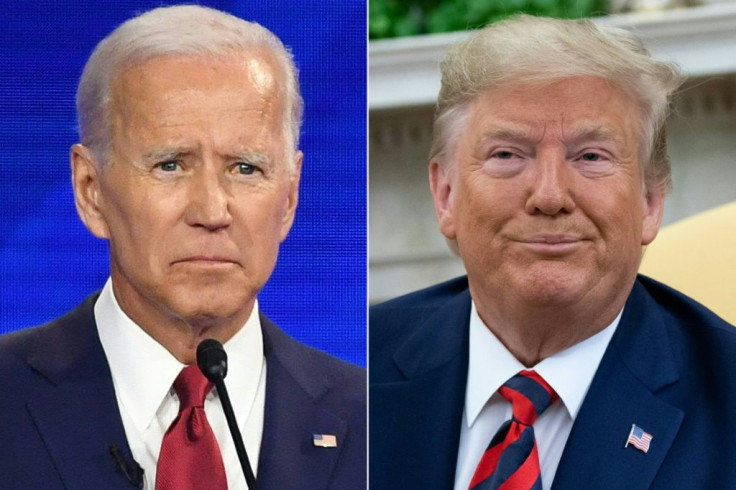Trump Ads Pulled: YouTube And Google Say Policies Were Violated

At least 300 ads for Donald Trump were pulled from Google and YouTube platforms over the summer, according to a report from CBS' "60 Minutes."
In an interview that aired Sunday, YouTube CEO Susan Wojcicki confirmed that the video platform had pulled ads for violating its policies. This was in response to questions about whether the company’s policies would lead to a ban of a controversial Trump ad targeting Democratic presidential candidate Joe Biden.
In reviewing an archive of ads that were submitted to the platform, "60 Minutes" found that more than 300 Trump ads were pulled for violating certain policies. However, it is unclear from the archive which specific policies each ad violated and the videos themselves cannot be viewed. It was found that each ad was allowed to run for several days before the violations were detected, meaning that they were likely able to have an impact on their target audiences.
“For every single video, I think it’s really important to look at it,” Wojcicki said when asked if politicians could lie in YouTube videos. “Politicians are always accusing their opponents of lying. That said, it’s not OK to have technically manipulated content that would be misleading.”
Wojcicki also took issue with the notion that her company discriminates against Republicans.
“Well, first of all, there are lots of very successful conservative creators on YouTube,” Wojcicki said. “Our systems, our algorithms, they don't have any concept of understanding what's a Democrat, what's a Republican. They don't have any concept of political bias built into them in any way. And we do hear this criticism from all sides.”
© Copyright IBTimes 2024. All rights reserved.





















